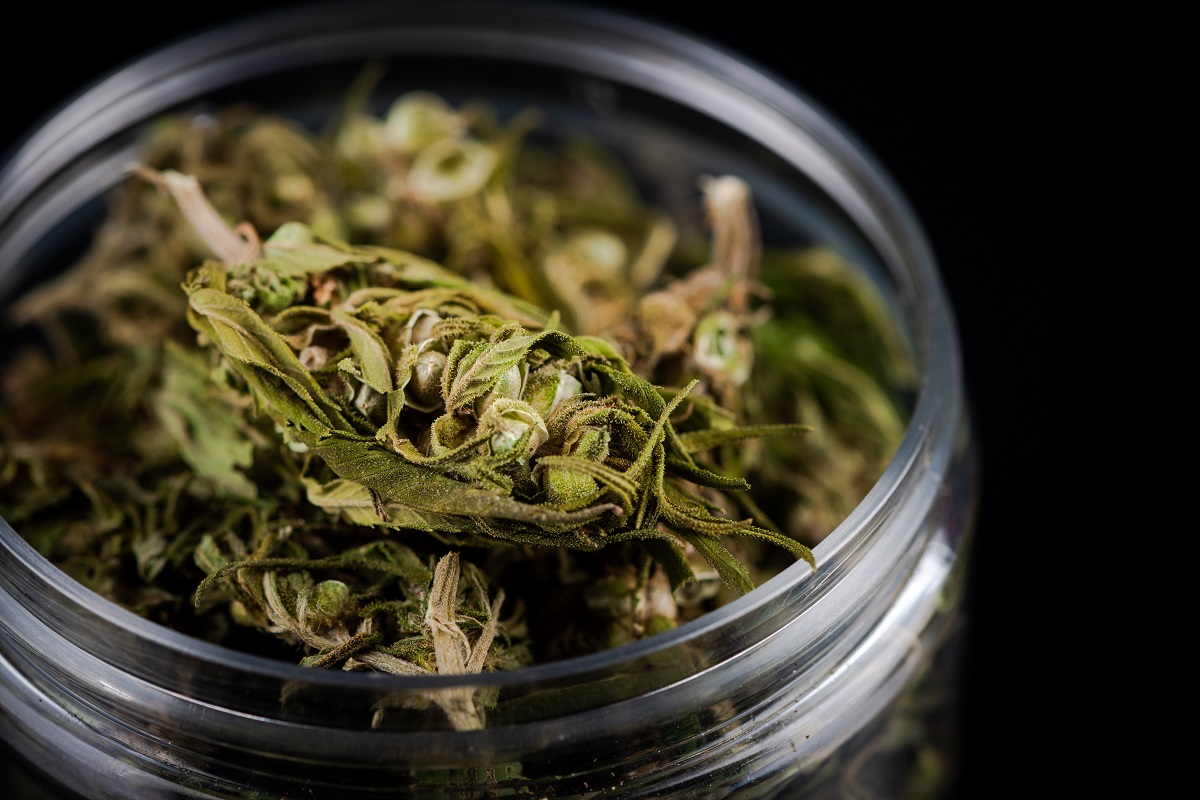
Meet caryophyllene, the terpene that is in almost every top-selling medical cannabis product. Terpenes are responsible for the taste and smell of cannabis flower, with tones of that range from citrus to earthy, spicy to floral or lavender, and berry scents and flavors.
When the medical community talks about terpenes, they are referring to the part of the cannabis plant DNA that provides the most wellness benefit. Terpenes are bioactive, and some research suggests that terpenes may impact how the body absorbs and uses CBD, possibly multiplying the positive health effects of other cannabinoids found in marijuana. This is called the “entourage effect”.
We wanted to share some of the reasons why the caryophyllene terpene stands out compared to other types and discuss some of the wellness benefits that patients can experience with long-term use of medical cannabis that is rich in beta-caryophyllene.
Caryophyllene is a rare terpene by molecular structure and performance. While it is a terpene found in most of the highest selling medical and recreational strains of cannabis, it is unique for a variety of reasons. First, that it has a very unusual but pleasant spicy flavor and smell, comparing it to black pepper, oregano, and basil and notes of cinnamon and cloves.
Why is caryophyllene such a superstar among different types of cannabis terpenes? It is the only terpene known to directly bind to the CB1 (brain) and CB2 receptors (organs) in the human endocannabinoid system. It provides all the wellness and anti-inflammatory benefits without the euphoric “high” feeling. Human endocannabinoid receptors accept caryophyllene like it is an ‘old friend’ and optimizes the wellness benefits of the terpene in many different ways.
The strains of cannabis that have the highest levels of caryophyllene are:
Caryophyllene is also called beta-caryophyllene or BCP, and it is also found in aromatic oils in products like hops, basil, and black pepper. It is a larger molecule than other terpenes like myrcene and has a cyclobutene ring that is not found in other cannabis terpene varieties.

The terpene also has a high evaporation level of 390.2°F which makes it an ideal compound for the manufacturing of medical cannabis tinctures and edibles. That is also why cannabis strains that are high in caryophyllene have such a rich scent and flavor profile, making it a favorite strain for patients who prefer smokable flowers.
It is estimated that there may be as many as 50,000 different types of naturally occurring terpenes, and researchers have classified over 200 of them in the cannabis plant. As the most common and powerful terpene in cannabis, caryophyllene offers a number of health benefits for patients with chronic diseases and pain symptoms.
Cannabis strains that are high in caryophyllene are commonly prescribed for patients who have heart disease, liver, or kidney disease, neurological or neurodegenerative diagnoses, immune system disorders, and gastrointestinal problems such as irritable bowel syndrome (IBS).
Caryophyllene can contribute to improved health and wellness, impacting five main areas of the nervous system and immune system functioning:
Caryophyllene binds with CB2 receptors, which are responsible for the healthy functioning of the human immune system. The role of CB2 receptors is to keep inflammation in check. When the terpene binds with the CB2 receptors, it helps suppress the release of cytokines, which trigger inflammation in the body.
The anti-inflammatory properties of caryophyllene are very valuable for therapeutic use in patients diagnosed with cancer, muscular dystrophy, diabetes, and other chronic diseases that are caused by unmanaged inflammation.
Health experts in neurological and neuropathic pain are familiar with the potential of caryophyllene to provide pain relief. This is yet another reason why the most popular medical cannabis strains have high levels of the caryophyllene terpene.
By now, the medical community has acknowledged that opioids may be the least effective (and most dangerous) method of managing chronic pain. Medical cannabis is rapidly establishing itself as a safer and sometimes more effective alternative for patients, and beta-caryophyllene isolates are also available globally for patients as a natural pain remedy.
For more interesting insights about the pain relief potential of caryophyllene in therapeutic treatments for chronic pain, read: “The cannabinoid CB₂ receptor-selective Phytocannabinoid beta-caryophyllene exerts analgesic effects in mouse models of inflammatory and neuropathic pain”.
PMID: 24210682 DOI: 10.1016/j.euroneuro.2013.10.008.
Caryophyllene is a powerful antioxidant that can provide wellness benefits to patients who are diagnosed with cancer. Antioxidants help to remove and eliminate free radicals from cells and prevent mutated cells from replicating. They act as a ‘seek and destroy’ mechanism at the cellular level, attaching themselves to damaged cells, and helping the body to disarm them and then discard them, to reduce cancer from spreading or becoming systemic.
Like CBD, caryophyllene can help reduce seizures and painful involuntary muscle spasms. In one published clinical study, “Anticonvulsant activity of B-caryophyllene against pentylenetetrazol-induced seizures”. Pentylenetetrazol is frequently used for the treatment of severe depression but has the side-effective of muscular tremors.
The study revealed a positive effect of suppressing convulsions for patients that were administered caryophyllene, and the terpene also has a strong anti-anxiety side-effect which is complimentary for the treatment of clinical anxiety and post-traumatic stress disorder (PTSD).

You may have read some discussions about the potential of cannabis to help patients who have contracted the Novel Covid-19 coronavirus. There are no clinical studies currently evaluating medical cannabis therapies for Covid-19 patients, but cannabinoids and terpenes can have a positive health benefit because of their anti-microbial properties.
Beta-caryophyllene has not been the focus of infectious disease studies, but plants that are rich in caryophyllene have been documented to reduce the growth of microbes, like candida (yeast). But one of the most exciting findings of the study of the Zingiber nimmonii plant (which has very high levels of the caryophyllene terpene) is that it can help kill off Aspergillus niger, which is one of the most common microbes found in severe respiratory infections.
Caryophyllene can also be supplemented through dietary sources like cloves, black pepper, cinnamon, allspice, marjoram, rosemary, basil, and thyme. That is even more incentive for patients who struggle with inflammatory diseases to cook with fresh herbs or have an herb garden at home. Thyme is a fresh lemon-flavored herb that can be added to tea, soup broths, desserts, and healthy fruit and vegetable smoothies.
When you consider the health benefits of caryophyllene, it is not surprising to learn that some of the most popular strains of medical cannabis are high in this valuable and specialized terpene. When medical marijuana patients explore different strains, they want to choose cannabis products that are going to have the best possible outcome for symptom and pain management needs.
More human-based clinical health studies are needed to fully understand the therapeutic potential of caryophyllene. Global medical researchers are exploring treatments and preventative measures to help reduce Covid-19 infection rates. As they work to improve the prognosis for immune-compromised patients, we may see an increased interest and breakthrough medical discoveries about this valuable terpene.
No Information on MarijuanaDoctors.Com should be used to diagnose, treat, prevent or cure any disease or condition. You can view our Full Disclaimer here.